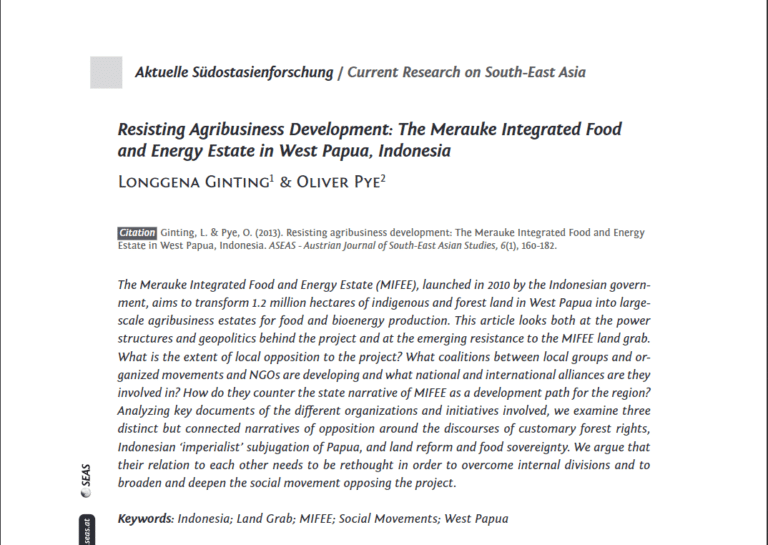Food estate approach is not a novelty in Indonesia. Several times already, the Indonesian government has taken this approach – which is said can improve food security and people welfare. In the ninth edition of ‘Tandan Sawit’ webinar series, the spokesperson shared their stories about the failures and lessons learned from three food estate development areas in Merauke (Papua), Ketapang (West Kalimantan), and ex-MRP (Mega Rice Project in Peatland, Central Kalimantan).
In the three programs above – with ‘for the sake of food security’ as a mantra, has the same root of the problem: lack of communication with local communities, which leads to social conflicts. The food estate project in Merauke, a.k.a the Merauke Integrated Food and Energy Estate (MIFEE), was not prepared for locals who are mostly hunter-and-gatherer. Conversely, support for private corporations and the interests of few people was evident, combined with many forms of repression by law enforcement officials. The issue with the food estate in Ketapang in 2011 was not much different. The rights of local communities have been neglected, resulting in several cases of land grabbing with unilateral and biased decisions. Moreover, the swamp forest which has been native-style-supermarket for the locals was sacrificed. Lack of communication also led to the confused local residents knowing the food estate program in their area turned out to be also transmigration ones.
As one of the earliest food estate projects, the MRP was marred by problems of social conflict, given the approach used by the government at that time. Sadly, until now, the government continues to ignore the rights of locals, especially indigenous people, in implementing their programs. It’s as if FPIC doesn’t exist. FPIC stands for Free, Prior and Informed Consent, which is the right of indigenous peoples to say “yes, and how” or “no” to developments affecting their resources and territories. Without awareness of the involvement of the local community, any food estate plan, including ones in Central Kalimantan, could have the same fate as the previous plans – failing and hurting many.





